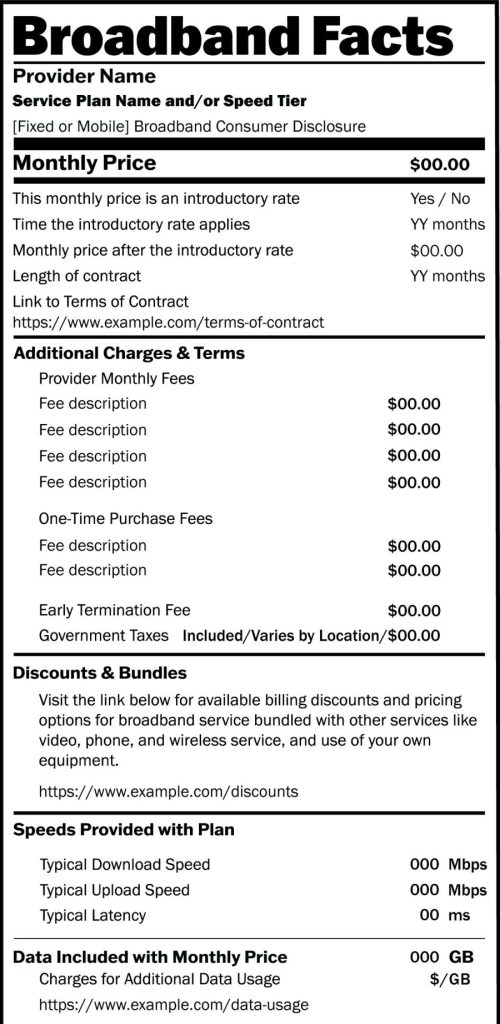
By Ahmad Hathout
The CRTC has launched an expected proceeding Wednesday into what kind of information and to what granularity consumers need when purchasing internet plans.
The commission will look at six issues, it said in the consultation document: standardizing information in a broadband consumer label, such as those on foods; providing clear and comparable information on network performance; measuring network performance and quality; providing information with examples and context; strengthening the position of consumers in their relationships with service providers; and implementing consumer protection measures and identifying associated costs.
For labels, the CRTC is soliciting comments on what kinds of information should be presented; whether technical information should be explained, such as maximum, average and typical speeds, latency, jitter and other relevant metrics for consumers; whether information about speeds during peak periods of the day and how that period should be defined; and what role the Commission for Complaints for Telecom-television Services (CCTS) should have in administering the rules.
The deadline for comment is February 20, 2025. The commission will then hold a public hearing on the issue on June 10, 2025.
The regulator said it contracted public opinion research, which utilized targeted focus groups and a Canada-wide survey, to arrive at the consultation issues.
The launch is part of a series of consultations to strengthen the internet and wireless codes by enhancing transparency and making it easier for consumers to cancel contracts and switch providers.
Before the commission announced those consultations, CRTC Chair Vicky Eatrides said in October that the commission would look at possibly consulting on “nutrition labels” for internet plans, a versions which is already enforced by the United States’s Federal Communications Commission.

FCC label example
This summer, a private member’s bill that proposed to amend the Telecommunications Act to require ISPs to provide Canadians with the “typical” download and upload speeds that customers should expect during peak periods received royal assent.


